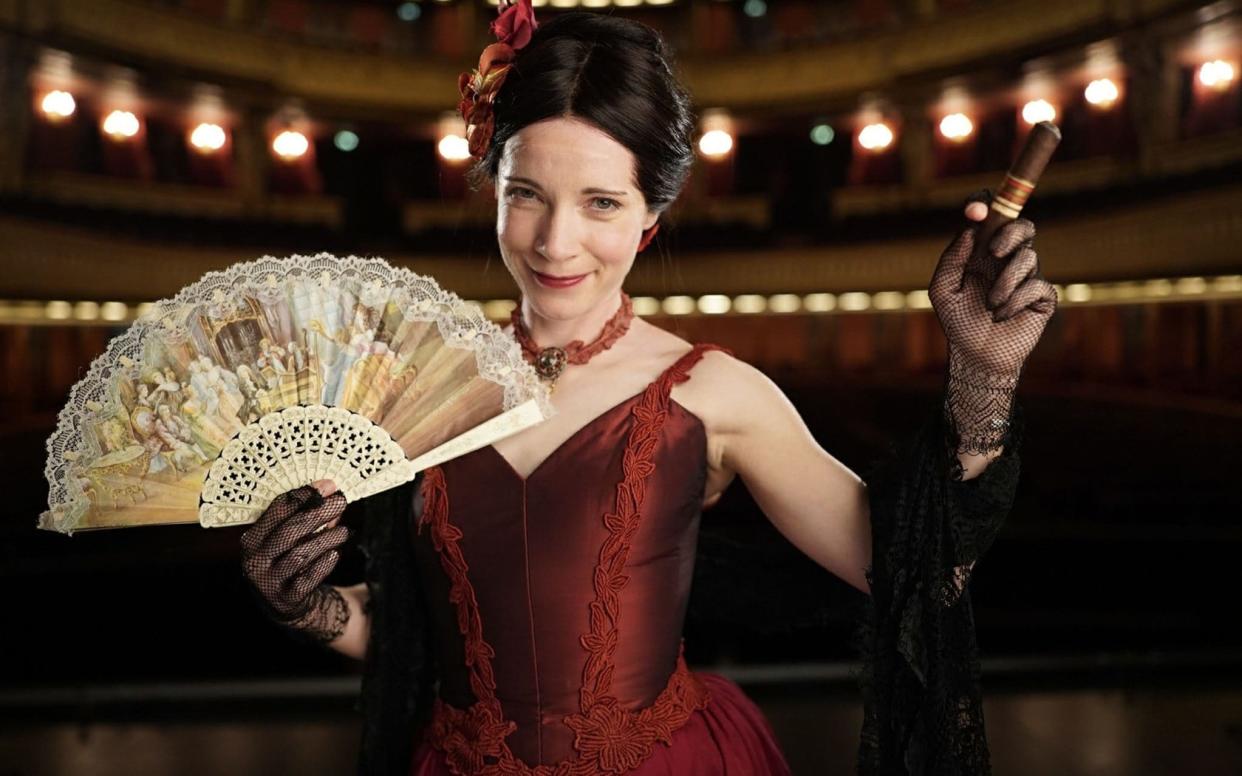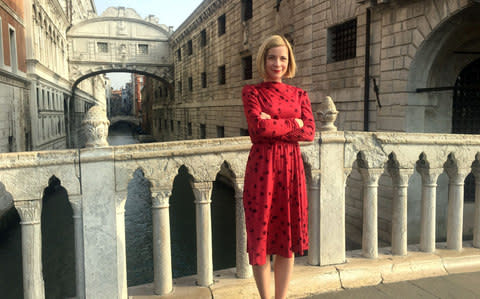Lucy Worsley’s Nights at the Opera is a history of dramatic art form for those who don’t like it - review

It’s fair to say that Lucy Worsley rarely aims for the intellectual high ground. Lucy Worsley’s Nights at the Opera (BBC Two) was never going to appeal to the kind of opera buff whose perfect Saturday night is spent glued to the wireless for a live broadcast of Götterdämmerung from the Met.
But who, exactly, this two-part survey of the historical background to popular operas was directed at, was never clear. Certainly no one whose hackles would rise at opera being described as “the greatest show on Earth”, or the assumption that their only previous encounter with opera had been via the soundtracks of blockbuster movies or World Cup theme tunes. (“Nessun Dorma? It’s a song about football, isn’t it?”)
For those who made it through the patronising introduction, there were moments to enjoy. Worsley’s central point was a good one: that many of the great operas were deeply political. And that much of their initial success lay in subversively capturing the spirit of the places and times in which they were composed.
In this opening part, she skipped from the opera houses of Venice to Vienna, and on to Milan – raiding their impressive costume departments along the way, as she does. We learnt that Monteverdi’s The Coronation of Poppea was not only “kinky” but also a means for fiercely independent 17th-century Venice to thumb its nose at Rome and the Catholic Church. She told us how Mozart’s treatment of nobles and servants as musical equals in The Marriage of Figaro was an act of “revolution”. And how both Fidelio and Nabucco were responses to invasion and oppression, created to slip past unsuspecting censors as vehicles of political defiance and resistance.
While all of this was undoubtedly engaging, even fun, it was always going through the motions. A sense that for all her knowledge our presenter didn’t radiate any special connection with the music itself. Though the presence of the Royal Opera House’s director Antonio Pappano as occasional back up made up for that, in part.

Compared to, say, Tunes for Tyrants: Music and Power with Suzy Klein (on BBC Four), which offered a serious, sustained and accessible analysis of how classical music fed into some of the key ideological battles of the 20th century, this material felt thin and uninspired – nothing that a set of programme notes wouldn’t cover just as well.

